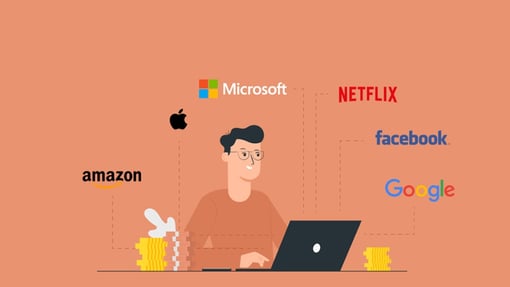Online payment gateway & it can help Indian businesses expand globally
2 minutes read

To succeed in today’s world, companies need to expand internationally. But dealing with cross-border transactions and international payments can be difficult. This is where Online Payment Gateway Service Providers (OPGSP) play a vital role. This article will discuss OPGSPs, compare them to traditional payment methods, and explain how they can assist Indian SMEs in succeeding globally.
What is an online payment gateway?
An online payment gateway service provider, more commonly known as an OPGSP, enables businesses to receive international payments quickly and securely. , it acts as a bridge between exporters and foreign collections. When a customer or client from another country buys a good or a service, they pay via the OPGSP. Then the OPGSP changes the money to INR and sends it to the Indian seller’s bank account.
How does an online payment gateway work?
OPGSPs facilitate online payments and transfers between businesses, freelancers, and international clients. With approval from the RBI, banks can work with OPGSPs to send exports up to $10,000 and imports up to $2,000 per transaction.
Banks must follow RBI guidelines and do a careful check before partnering with OPGSPs. This helps businesses trade internationally safely and without breaking the rules.
How does it compare to traditional payment methods?
Wire transfers and SWIFT are expensive and time-consuming, with high transaction fees (1-2%) and long processing times. PayPal is also a popular payment method for Indian exporters, but it often imposes steep transaction fees (typically 3-5%), which can impact the exporter’s earnings.
OPGSPs are better suited for international trade. They charge less for payments, allow multiple currencies, and offer competitive exchange rates. They also have real-time tracking and reporting features, fraud detection, and chargeback management.
Online payment gateway and virtual accounts
When a company or freelancer signs up for an OPGSP, they can set up virtual accounts. Each account gets a unique number or code given to clients for payments. This way, SMEs avoid opening foreign bank accounts, which are expensive and time-consuming. The virtual account is linked to the SME’s Indian bank account, so funds can be transferred directly.
Using virtual accounts with OPGSPs reduces transaction costs for Indian SMEs. The funds go straight into the Indian bank account without intermediary banks. Unique virtual account numbers help track and reconcile payments with invoices, reducing errors and fraud.
Winvesta: Virtual Multi-Currency accounts
With Winvesta, you can get your own virtual multi-currency accounts with a local US, UK and SEPA IBAN account number. Businesses and individuals can receive payments from 180 countries in over 34 currencies faster and cheaper.
Winvesta also operates as an OPGSP, enabling you to withdraw your earnings to INR in as less as 1 day at rates starting at 0.99%!
Indian SME exporters face significant challenges in receiving payments from foreign buyers, including delays, high transaction costs, and currency conversion charges. OPGSPs have revolutionised how Indian SMEs conduct international trade by offering a secure, fast, and cost-effective alternative to traditional payment methods.
By partnering with banks, online payment gateways have gained credibility and trust among businesses. Using virtual accounts in conjunction with OPGSPs, such as Winvesta, can further reduce transaction costs and improve payment reconciliation. With the rise of global e-commerce, OPGSPs are becoming indispensable tools for Indian SMEs to succeed in the global marketplace.
Open your virtual multi-currency account with Winvesta today!


